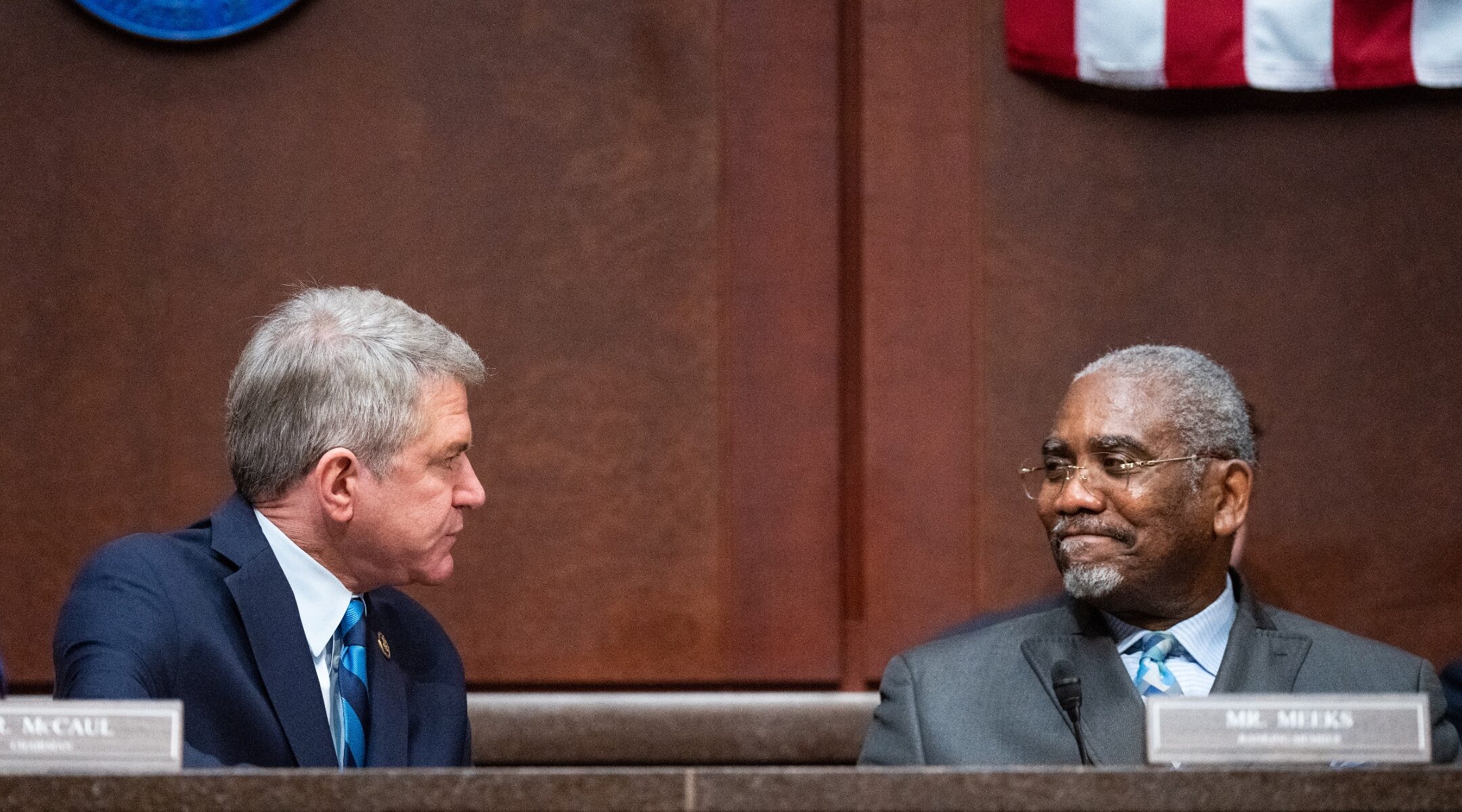WASHINGTON (JTA) — On Monday, two days after Hamas launched an invasion of Israel that killed and wounded thousands, AIPAC made a request of lawmakers that seemed like an easy ask: sign on to a resolution declaring that “the House of Representatives stands with Israel as it defends itself against the barbaric war launched by Hamas and other terrorists.”
Nearly all members of Congress — at least 390 out of 435 — support the resolution, but there’s just one problem: It’s going nowhere because there is currently no speaker of the House. That absence isn’t only holding up the non-binding, declarative resolution introduced by the pro-Israel lobby. It’s also preventing the approval of an emergency defense assistance package for Israel that Biden plans to present to Congress.
The speaker’s seat has been vacant for a week and counting, ever since a far-right faction engineered the removal of the previous speaker, California Rep. Kevin McCarthy for, among other things, favoring aid to Ukraine in its own war against a brutal invader.
The Jewish Telegraphic Agency asked the office of Rep. Michael McCaul, the Texas Republican who is the Foreign Affairs Committee chairman, where the pro-Israel resolution goes now. “We have been told it will be the first bill on the floor when we have a Speaker,” a spokeswoman said.
That could take a while. On Wednesday, the Republican caucus elected Majority Leader Steve Scalise of Louisiana as its nominee by a narrow margin of 113-99 over Jim Jordan, the Judiciary Committee chairman who was former President Donald Trump’s pick. The caucus has yet to set a date for the whole House to vote, as Scalise scrapes together the 217 votes he needs to win. Leaving the vote, Trump loyalists said they still favored Jordan, which could spell trouble for Scalise’s prospects.
Even though there’s no speaker, for committees, it’s business as usual. That is why McCaul and New York Democratic Rep. Gregory Meeks, the Foreign Affairs Committee’s ranking member, were able to work together to advance the AIPAC-backed resolution. But the House parliamentarian has told lawmakers that only an elected speaker may call votes on the floor.
“None of it is going to happen now, because there’s no speaker,” said Jason Steinbaum, the former top staffer on the Foreign Affairs Committee. “The Republicans are in a civil war.”
When it comes to providing defense assistance, Republicans have time: Israel has yet to formally make an ask, and would not do so without a green light from President Joe Biden, who also has not formally requested assistance.
“As of now, a supplemental funding proposal has not been submitted by the administration,” an AIPAC source told the Jewish Telegraphic Agency. The source was not worried about the outcome of the speaker election.
But on Wednesday, John Kirby, the National Security Council spokesman, said the absence of a speaker was creating roadblocks for getting assistance to Israel and Ukraine.
“That position is critical in terms of bringing legislation to the floor and moving things forward,” he said. “So the sooner there’s a speaker of the House, obviously, the more comfortable we’ll all be in terms of being able to support Israel and Ukraine right now.”
JTA has documented Jewish history in real-time for over a century. Keep our journalism strong by joining us in supporting independent, award-winning reporting.






